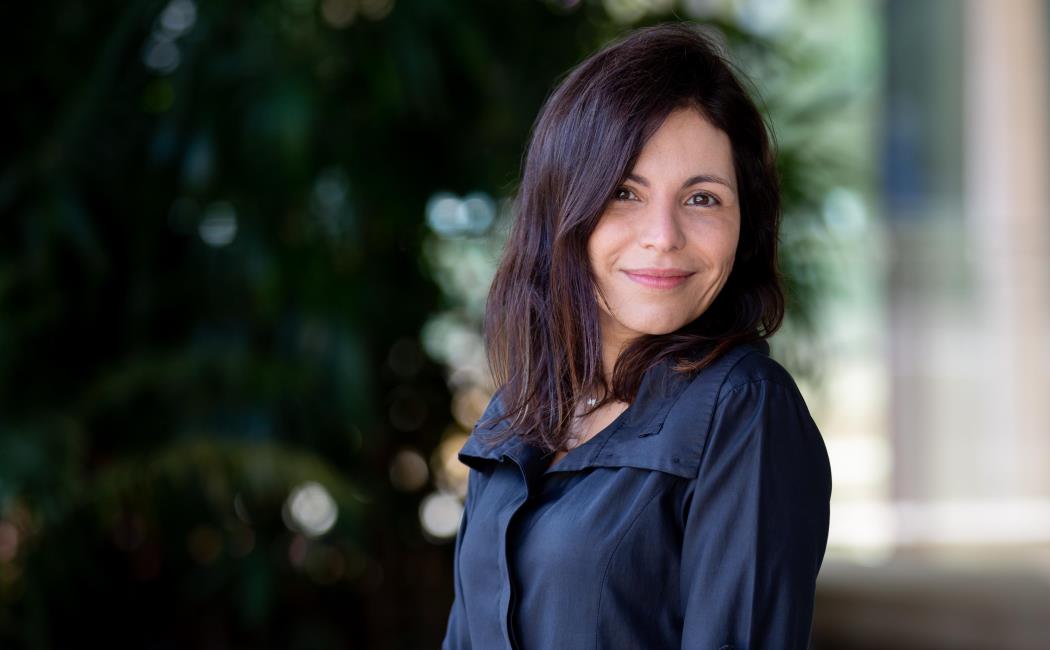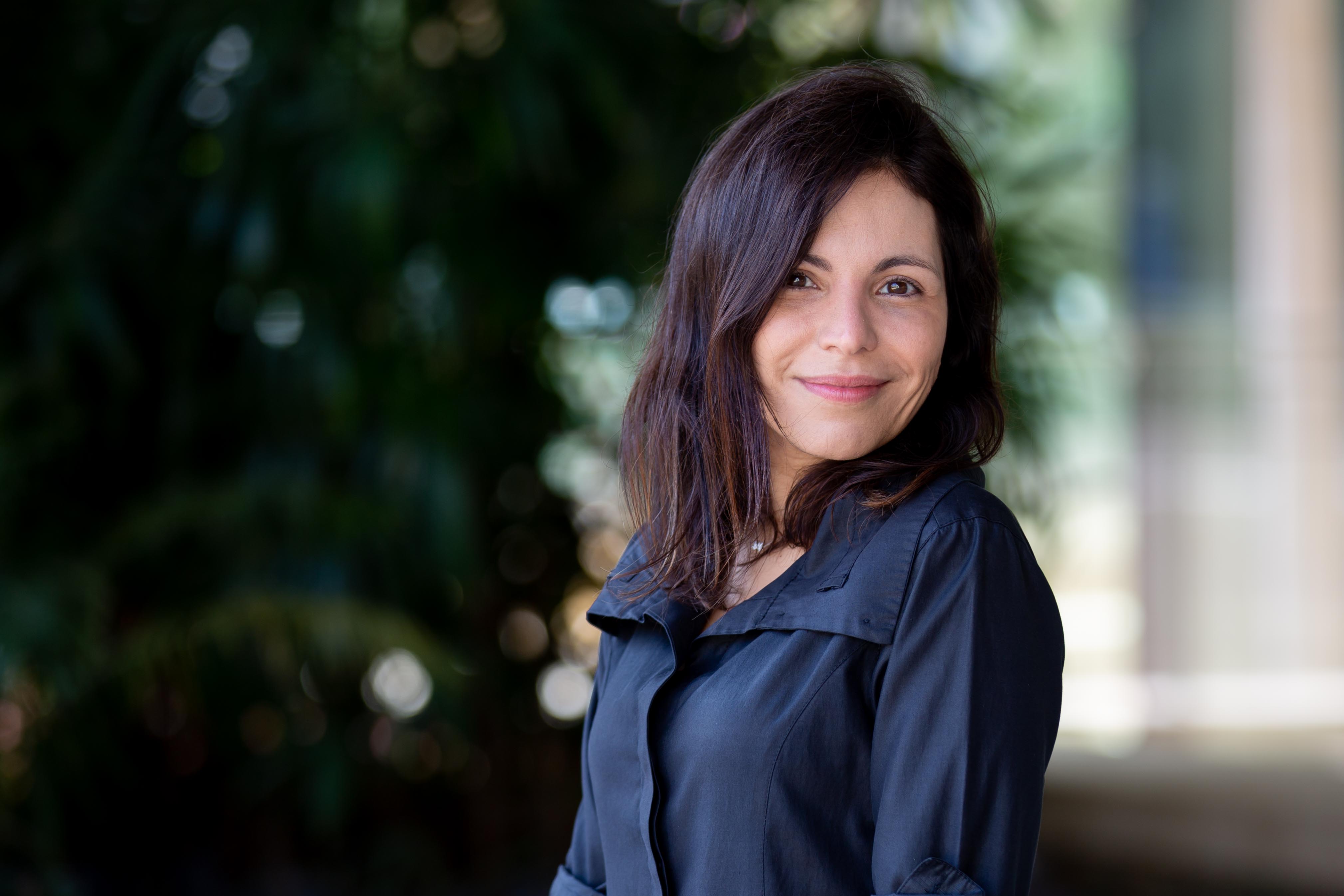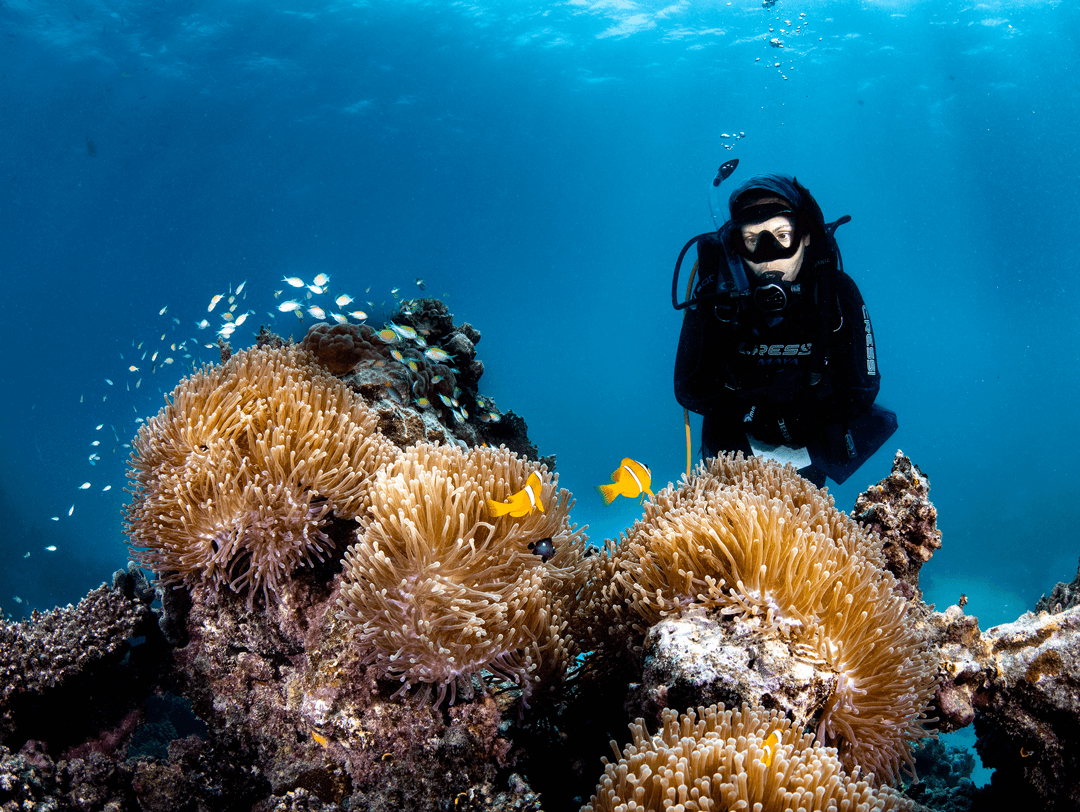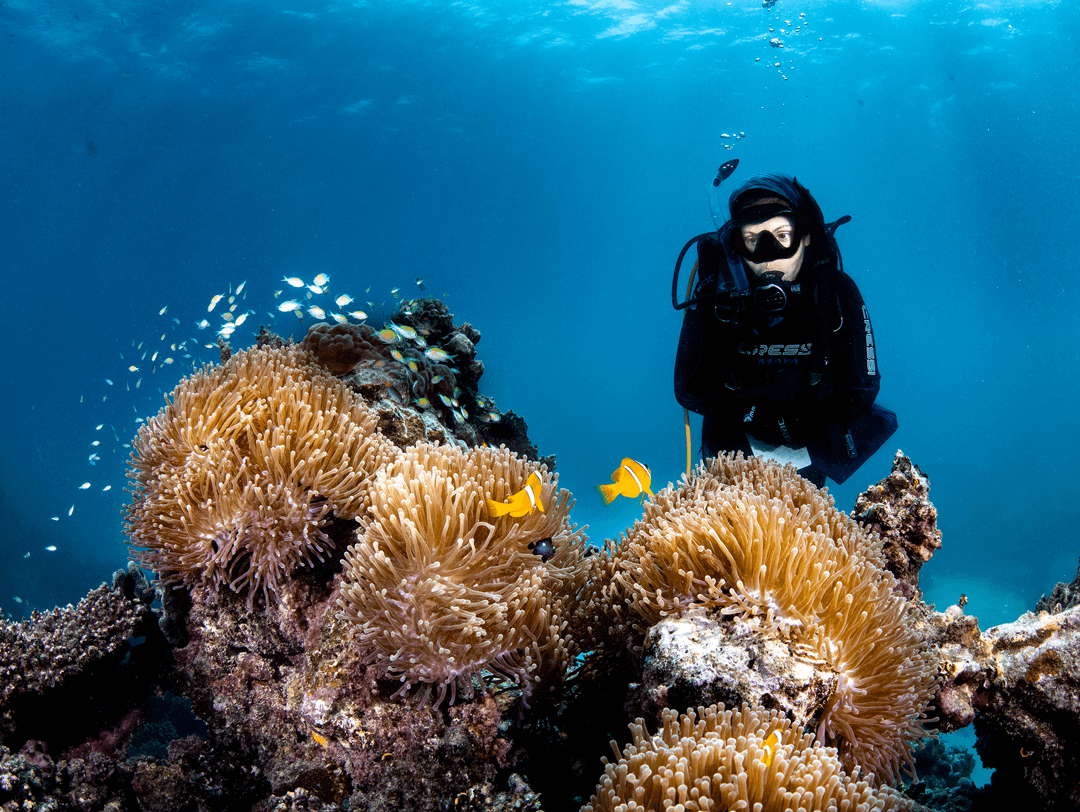


24 April, 2022
Prof. Raquel Peixoto, KAUST associate professor of marine science at the Red Sea Research Center (RSRC), is recognized as a Fellow of the International Coral Reef Society (ICRS) for her contributions to the field of coral probiotics. ICRS is the principal scientific association dedicated to coral reef research worldwide. Its mission is to promote the development and dissemination of science toward securing a future with coral reefs.
Peixoto is a lead author of a KAUST study that shows how probiotics can be helpful protagonists in boosting coral health and preventing mortality. Her research is helping to spearhead global microbiome discussions and discoveries.
"It's a great honor," Peixoto said. "I am a huge admirer of the Society. ICRS plays a very active role in stimulating engagement and collaboration in our community. The fellowship is for life, which means I will always be involved in critical discussions, ideation and suggestions. It's the most important scientific association of coral reef researchers and enthusiasts, so I am really pleased."

Recognized as 'good' or 'friendly' bacteria often found in yogurts and fermented foods, probiotics are live microorganisms best known for their role in helping humans to maintain gut health, supporting everything from digestion and weight loss to immune function and heart health. It is perhaps lesser-known, however, that other species also benefit from these bacteria.

"Most living beings — humans, plants, corals, bats, frogs — need the beneficial bacteria that are part of our microbiome," said Peixoto. "When microbes live in harmony with the host, they provide things we need through symbiotic interactions. However, when a host becomes stressed, the beneficial microbiome is also affected, and there is a breakdown of this symbiotic relationship."
Peixoto said it is at this moment that pathogens can thrive, replacing the beneficial microbiome and causing problems. "All of us are subjected to these dysbiotic processes, yet we're also able to reverse them using probiotics."
With a B.S. in Biological Sciences, M.S. in Biotechnology and Ph.D. in Microbiology, all from the University of Rio de Janeiro in Brazil, Peixoto has spent decades researching how bacteria can be used to support different organisms and vital natural ecosystems, both on land and underwater.
Her latest work at KAUST proves the concept that the manipulation of coral-associated microorganisms is not only possible, but can also prevent coral mortality and increase the host's resilience and resistance against environmental threats. Her pioneering work is helping to pave the way for new approaches in marine microbiology and symbiotic interactions.

The ICRS recognizes Peixoto for work beyond her own studies.
Peixoto has made several critical contributions as a longstanding member of the ICRS. She currently serves as co-chair of the ICRS Conservation Committee that addresses selected conservation issues and previously served as a co-leader of the ICRS delegation that attended COP26, helping to highlight the urgency to limit global warming to 1.5 degrees to protect coral reefs.
Such involvements stem from Peixoto's strong advocacy for widespread collaboration among political, commercial and scientific communities for the enhancement and acceleration of vital research.
It is for this reason that she founded and now co-chairs the Beneficial Microbes for Marine Organisms network (BMMO) as part of her work towards coral reef protection, restoration and rehabilitation. A powerful international platform, BMMO has been designed to facilitate knowledge sharing and stimulate the development of tools for marine ecosystems and sustainable development.
"It's a platform I'm really passionate about," she said. "It avoids various communities doing things in parallel that are similar. We don't have time, right? Corals are dying quickly, so if we can communicate and optimize efforts, we can avoid overlaps and stimulate collaboration to achieve more."
With a strong academic background in both marine science and microbiology, Peixoto is well placed to spark discussions across various communities. In addition to her newly acquired fellowship at ICRS, she is heavily involved with the International Society for Microbial Ecology (ISME), where she will lead as Vice President in August 2022 and President in 2024.
"I never expected this to happen. I was very surprised," she exclaimed. "I'm going to be the first Latin American person to hold these positions, as well as one of the youngest, for which I'm extremely proud. I'm excited to take the opportunity to make idea sharing in this space even more inclusive, cultivating collaborative opportunities that everyone can join."
Peixoto plans to continue moving her team's discoveries from the lab to the field, having recently helped establish the world's first Coral Probiotics Village at KAUST's RSRC.
Village operations are growing, with a rising number of faculty members using the facility for research, and with new facilities being added, including a planned floating platform that will house solar panels, satellite technology and sensors.
Looking to the future, Peixoto affirmed, "I'll be very focused on supporting the development of this asset for KAUST over the coming year. It provides the perfect opportunity to test probiotics and see how they affect the whole reef, not only the corals."
Peixoto acknowledged KAUST for the generous support she has received to date, and for making her feel at home so quickly in her new research environment. She added, "I have a 21-strong group of mostly female members, for which I'm extremely proud, with papers being published and theses running. I'm pleased to contribute to KAUST's mission in this way."